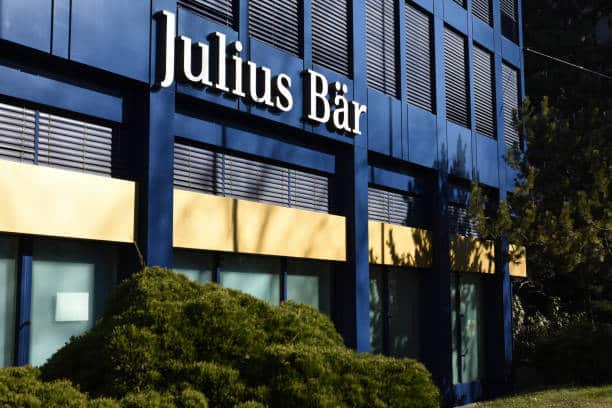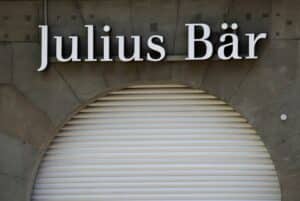Julius Baer Group Review part 2 – Part one is here.
Julius Baer Investment Approach

Julius Baer focuses on a deep understanding of your needs in terms of wealth accumulation, wealth preservation, and wealth transfer to the next generations. Based on your unique situation, they use a holistic advisory approach to systematically find suitable financial solutions spanning wealth planning, investing, and funding.
The result is a service experience that is fully tailored to your individual preferences, taking into account your financial, business, and personal goals. To achieve this goal, they use many specialized resources provided by our specialized divisions.
Investing requires a subtle combination of discipline and knowledge, as well as intuition, as markets are first and foremost a social ecosystem that reflects collective expectations—sometimes right, but not always.
Money management stands on the border between art and science

Julius Baer’s investment approach to discretionary mandates is to accept the realities of today’s world and at the same time recognize the major changes that are changing life as we know it.
Faced with an increasingly politically driven investment environment and a long-term trend towards everything digital, traditional asset allocation has become a thing of the past and more patience is required to weather the volatility.
Investment Beliefs
The group holds a set of investment beliefs in five main categories that guide them in their own asset allocation process:
Core Beliefs:
- There are some absolute investment truths
- There should be a set of investment beliefs that reflect its strengths and weaknesses as investors
- They challenge your investment beliefs just as their challenge their own
- Skills and Market Efficiency
- There are few arbitrage opportunities
- Noise is not information: active bets must reflect a verifiable advantage and be original
- Contrasting views should be observed with caution
Strategic choices:
- Portfolio building is central: we bring the building blocks together into a meaningful portfolio
- The chosen strategic asset allocation must be appropriate and viable
- Following the committee’s market timing does not add value – it is necessary to take risks from time to time
- It may pay to be fully invested
Market behavior
- They are following the analysis of the Chief Investment Officer (CIO)
- The reversion to the mean may not occur for a useful period of time
Investment horizon
- The investment horizon is a decisive factor for determining the appropriate investment strategy
- The group recommends that you choose long-term investment horizons
Investment process
The investment approach is based on a four-step investment process through which they strive to systematically manage risk and return. As a customer, you will benefit from each of these steps.
Next-generation investment
Although the group does not know what tomorrow’s world will look like, they can be sure that it will be different from today’s. The world around them is constantly changing and they struggle to understand the complexity of the trends that are developing around them.
Some of these trends start small and don’t seem big at first glance. Eventually, they become so powerful that they can neither be stopped nor reversed once they recognize them. These so-called megatrends are often interconnected, which makes them even more powerful.
What is Next Generation Investment?
With the Julius Baer Next Generation Thematic Investment Philosophy, the group wants to understand the long-term and structural shifts brought about by these megatrends. Over the past decade, they have accumulated extensive experience in thematic investment. Also, they highlight stories of structural growth and see the hype around some of these topics, offering investment solutions with a clear thematic focus.
The main themes of “Next Generation” are “Rise of Asia”, “Digital Revolution”, “Energy Transition”, “Feeding the World”, “Cities of the Future”, “Lifestyle Change and Inequality”.

Julius Baer’s approach to sustainable development
Julius Baer’s goal is to create value beyond wealth. And as the group recognizes the important role of the financial sector in the transition to a more sustainable world, this goal is also reflected in the sustainability strategy. They strive to empower their customers, employees, and other stakeholders to make a positive impact today and into the future.
The sustainability strategy helps them to redirect capital flows towards a fairer future and a healthier planet for future generations. To do this, they will focus on two of the most important global challenges in the transition to a sustainable economy: addressing the overuse of natural resources and addressing the underutilization of human resources.
The group takes a holistic approach that combines responsible wealth management and responsible citizenship.
Responsible wealth management
Julius Baer’s approach to responsible wealth management includes responsible investing, sustainable investing, impact investing, and philanthropic services. To support their clients on their path to sustainability, they have developed a comprehensive ecosystem that goes beyond just financial products.
Responsible citizenship
Responsible citizenship at Julius Baer includes the group’s approach to behavior and risk, their role as a caring employer and community partner, and the commitment to conserving natural resources.
Solid heritage and management
For 130 years, they have been helping families and new generations thrive. At the same time, they have always taken the obligations to the stakeholders and society seriously. In 1965 the Julius Baer Foundation was founded. In 2014, the group signed the UN Principles for Responsible Investment (UN PRI), and in 2015 the operations became carbon neutral.
In 2019, they became a founding signatory to the UN Principles for Responsible Banking (UN PRB). Thus, over the years, they have continued to recognize the wider role they can play in society and for the environment. Today, sustainability is formalized and built into the core business.
Sustainable growth is one of the strategic priorities, and the new concept of sustainability plays a key role in how they create value beyond wealth. The importance given to sustainable growth is reflected in the group’s governance.
Council for Sustainable Development

The Sustainable Development Board is a committee of the Executive Board and is chaired by a CEO. It defines, oversees, and directs the Group’s overarching sustainability strategy and roadmap. The Committee meets quarterly, reviews and determines the materiality of new and existing sustainable development topics at least once every three years.
Strategic decision making on environmental, social, and governance (ESG) topics and overall prioritization of initiatives and outcomes in this area is the responsibility of the Sustainable Development Council. Matters that have a direct strategic impact on the Group as a whole must be referred to and adopted by the Executive Board and then approved by the Board of Directors.
Sustainability Team
The Director of the Sustainable Development Board leads the sustainability team and reports to the CEO through the Chief of Staff. The team is responsible for developing and overseeing the Group’s sustainability strategy and proposes new strategic topics for consideration by the Sustainable Development Board. It ensures overall coordination and alignment of sustainability activities across the various business functions, drives strategic initiatives and results, and provides the Sustainable Development Board with regular updates on the status of these initiatives and results.
Capital and scale
Julius Baer originally operated as a partnership and was incorporated on November 27, 1974, with a share capital of CHF 14.040 million divided into 56,400 registered shares of CHF 100 each and 16,800 bearer shares of CHF 500 each. The company went public in 1980. The Baer families relinquished control in 2005 by converting the share capital into a single class of registered shares listed on the SIX Swiss Exchange. Today MFS Investment Management is the largest shareholder with almost 10% of voting rights.
In 2020, Julius Baer announced that it plans to cut 300 jobs, a decision that is part of the company’s CEO’s three-year plan to boost the bank’s profitability.
Acquisitions
In September 2005, Julius Behr acquired the independent private banks Ferrier Lullin, Ehinger & Armand von Ernst, Banco di Lugano and the asset management company Global Asset Management (GAM) from the Swiss banking giant UBS AG to become one of the largest independent banks. asset management firms in Switzerland. UBS acquired nearly 21% of Baer’s shares in the deal but sold its stake in May 2007 to fund a share buyback. GAM was spun off into a separate company in October 2009. The group companies are grouped under Julius Bär Gruppe AG, which is listed on the SIX Swiss Exchange.
In November 2012, Julius Baer and Milan-based Kairos Investment Management SpA (“Kairos”) announced a collaboration agreement to jointly establish a leading onshore asset management company in Italy. Julius Baer’s Italian SIM was integrated into Kairos and at the same time, Julius Baer acquired a 19.9% stake in Kairos. All activities of the two asset management groups in Italy are carried out under the name Kairos Julius Baer.
Julius Baer acquired non-US-based Merrill Lynch International Wealth Management (IWM) in August 2012 for CHF 860 million ($884.8 million). The deal increased Julius Baer’s assets under management by 40%, increasing AuM to 251 billion francs ($258.2 billion).
In July 2014, Julius Baer announced the acquisition of the private banking assets of the Israeli bank Leumi.
Evaluate the investment strategies and advantages of the Hansard International Vantage Platinum II, comparing it to Julius Baer Group’s approach to wealth management.
Pained by financial indecision? Want to invest with Adam?
Adam is an internationally recognised author on financial matters, with over 357.8 million answers views on Quora.com and a widely sold book on Amazon



